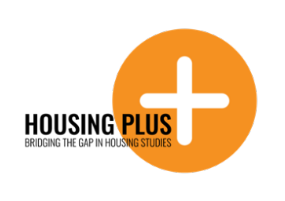Housing in the EU: challenges and opportunities in understanding housing and professional training
Date: Monday, July 3rd 2023
Place: Faculty of Law and Administration, Bankowa 11B, 40-007 Katowice, Poland
About the conference:
The conference is organized to disseminate the results obtained in the project: “Bridging the gap in housing studies” (Housing +). Its aim is to discuss housing in the context of:
- human rights,
- accessibility,
- multi-unit building management,
- the market.
The conference combines discussion panels that allow to exchange knowledge and perspectives on housing with workshops aimed at engaging attendees and gaining feedback on the Housing+ project and the Intellectual Outputs that it has produced.
We invite you to submit proposals of presentations (or panel discussion involvement) in the following broad topic groups, bearing in mind the interdisciplinary character of housing and the needs of professionals active in that field:
1) Housing and the city (including: urban planning, accessibility, design, housing policies)
2) Housing and the market (including: housing preferences, housing prices and affordability, housing policies, demand and supply, mortgage lending)
3) Housing and the law (including: housing and human rights, evictions, tenancies, housing tenures, housing and EU freedoms, management and organization of multi-unit buildings, transactions in housing)
About the Housing + Project:
The aim of the project is to improve the academic training at the European level of professionals, policy makers, academics and the rest of the operators in general that participate in housing and real estate sector.
The EU housing and real estate sector is a resilient sector with an enormous enabling impact on jobs and economic growth. In recent years, relevant drivers have impacted in the housing sector, shaping the present and future challenges:
- Technological revolution(i.e blockchain, Proptech business, etc) gives room for new business models, innovative work dynamics, greater connectivity and technological advances meaning that we need new skills and different ways of working.
- EU Parliament resolution on a European Pillar of Social Rights acknowledges housing as one of the EU social pillarsand calls on the Member States to deliver on the right to adequate housing by ensuring access to quality and affordable housing.
- The European Professional Card(EPC) for real estate agents as well as the Implementation of Directive for the regulation of financial services appeal to a greater professionalization in this sector, characterized by an uneven regulation among EU State Members.
- Lessons learned from the 2007 financial crisis(i.e. consumer protection failure, evictions, homelessness) compel the housing sector for a review of the skills gaps along its value chain in order not to repeat the same mistakes in the future.
There are several disciplines that affect housing sector such as Economics, Law, Architecture, Psychology, Anthropology, Technology, etc. For that reason, it is essential to the professionals and stakeholders of this sector to understand the complex phenomenon of housing from that multiple perspective, avoiding ideologies or magical solutions. Therefore, the academic training in this area should consider all these disciplines at the same time.








